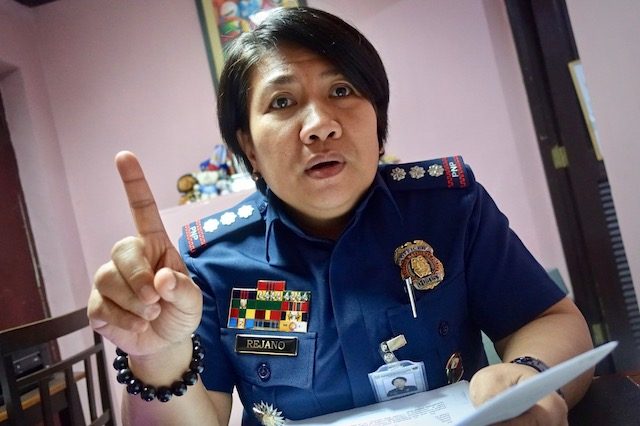SUMMARY
This is AI generated summarization, which may have errors. For context, always refer to the full article.

MANILA, Philippines – The children caught by cops violating the law are almost always from poor and vulnerable communities, a police official specializing in the treatment of children in conflict with the law (CICL) told Rappler in an interview on Tuesday, January 22.
“Madalang sa upper class [ang CICL]. Mga from the poor families, mga indigent kasi mostly ang nagco-commit ng mga ‘yan (crimes) eh,” said Senior Superintendent Angela Rejano, chief of the Anti-Violence Against Women and Children division of the police’s Women and Children Protection Center.
(It’s rare that CICL comes from the upper class. They’re from poor families, the indigents who usually commit those crimes.)
The PNP on Monday released data on CICL amid Congress’ heated discussion on lowering the age of criminal responsibility from 15 to 12 or 9.
According to the police tally, the crimes most committed by children from 2017 to 2018 are physical injury (4,342 incidents) and theft (2,394).
The third most prevalent among youth is damage to property, with 1,504 incidents. Rape cases follow with 1,649 reported incidents, then drug cases with 1,338 counts.
The children are vulnerable. The numbers, according to Rejano, are mostly coming from poor and vulnerable communities, where crime is prevalent because public spaces are not secure. This is where she thinks government’s rehabilitation efforts should focus on.
“The government approach should always boil down to [fighting] poverty. That’s really it,” she said.
She added: “Ang tanong ngayon diyan, gaano ka-fortified ang isang komunidad para ma-secure ang mga batang ito (The question there is, how fortified are the communities to secure these children)?”
Rejano said that simply implementing the justice system for juvenile delinquents won’t do. Under the law, the minimum age of criminal liability is 15 years old. This means that those between 15 to 18 years old may be detained in youth centers and be put through rehabilitation programs. Those under 15 are exempted from criminal liability and undergo intervention.
“Usually they (CICL) are turned over to the (Department of Social Welfare and Development). Usually, the assessment is to give a support package, but that’s it,” Rejano said. – Rappler.com
Add a comment
How does this make you feel?
There are no comments yet. Add your comment to start the conversation.